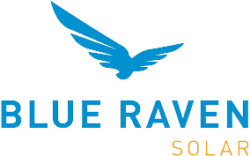Benefits of Solar Energy
Solar energy provides several advantages that will enhance your home for years to come.
- Better energy independence: Solar panel systems can keep your home powered through blackouts and emergencies. You can use your solar energy anytime with optional battery storage.
- Lowered energy bills: With solar energy systems, you create power without paying the tacked-on costs of grid-tied power. You can eliminate your bills completely if you go off-grid. Plus, a significant amount of states have adopted net metering, which permit you to earn money by selling your unused energy back to the grid.
- Reduced carbon footprint: The sun is the universe's most abundant clean energy source, meaning you can minimize or conquer your home's dependence on "traditional" sources.
What Solar Incentives Are Available to Johns Creek Homeowners?
Governments and power companies often incentivize homeowners for going solar. Here are some of the rebates, tax credits or other programs you could qualify for.
Incentive Type: Sales Tax Incentive
Incentive Amount:
100% exemption
Incentive Type: Rebate Program
Website: georgiapower.comIncentive Amount:
Single Family
Central AC Replacement: $50
Air/Duct Sealing: $300
Attic Insulation: $250
Heat Recovery Water Heater with Heat Pump: $250
Heat Pump Water Heater: $250
Solar Water Heater: $250
Home Energy Assessment: $150
Smart Thermostat: $75
Heat Pump conversion: $250
Multifamily
Central AC Replacement: $25
Air/Duct Sealing: $150
Attic Insulation: $125
Heat Recovery Water Heater with Heat Pump: $250
Heat Pump Water Heater: $250
Solar Water Heater: $250
Home Energy Assessment: $75
Smart Thermostat: $38
Heat Pump conversion: $125
Incentive Type: Loan Program
Website: cgemc.comIncentive Type: Rebate Program
Website: jacksonemc.comIncentive Amount:
PV: $450/kW-DC
Incentive Type: Personal Tax Credit
Website: ecowatch.comIncentive Amount:
30% federal tax credit for systems placed in service after 12/31/2021 and before 01/01/2033. Good for: solar water heat, solar photovoltaics, biomass, geothermal heat pumps, wind (small), fuel cells using renewable fuels.
How To Choose the Best Solar Company in Johns Creek
The more comprehensive your provider search is, the better your photovoltaic system will ultimately work. Consider all of these factors in your contractor search.
Licensing and Training
Georgia doesn't have solar-specific contractors' licenses, but the law does require solar installers to be licensed electrical contractors. The Georgia Secretary of State manages licenses and business filings. You should also visit a company's website to learn about its private credentials. Two of the most recognized are the PV Installation Professional and Solar Heating Installer certificates, backed by the North American Board of Certified Energy Practitioners (NABCEP). Some companies don't publish this information online, so you should also ask your estimator about them.
Cost of Solar Panels in Johns Creek
Different solar panel types look and perform differently. Monocrystalline panels cost more than other options, but they generate the most power and generally have the highest quality. Polycrystalline panels produce less power, but start at a more budget-friendly price point. Thin-film panels work well for small projects like RVs and sheds, but they're not ideal for larger installations due to their low performance.
You can also add battery backups and electric vehicle (EV) chargers. These will increase your total installation cost, but they can maximize your solar system's efficiency. Not all solar companies provide these optional components, so look for a provider that sells them if it's crucial for you.
Generally speaking, it costs about $18,700 for a five-kilowatt solar array in Johns Creek. This table displays more specific costs for different solar panel types and system components in your area.
| Solar Panel Cost | Average Cost |
|---|---|
| Solar Monocrystalline | $1,288 |
| Solar Polycrystalline | $1,005 |
| Thin-Film | $587 |
| Solar Battery | $824 |
| Solar Home EV Charger | $3,091 |
Financing Solar Energy in Johns Creek
There are numerous ways to pay for a new solar system, and the right one will lower your costs. A few of the most common options include power purchase agreements (PPAs), cash payments, loans, and leases. We recommend paying with cash or securing a solar loan for the highest return on investment (ROI). Cash payments require a hefty sum up-front, but you’ll pay the least long-term by avoiding interest. You’ll also have full ownership of your system and can apply for solar panel incentives to reduce your total costs. Solar loans are another solid option if you don’t want to make a big initial investment. You can pay for your system in monthly installments while still enjoying energy bill savings and solar incentives. However, you’ll spend more in total due to accruing interest. Solar leases involve paying a set monthly rate to use rooftop panels. A PPA (Power Purchase Agreement) permits you to pay a monthly rate based only on the energy you use, like an electric bill. We generally don’t recommend these two choices because you won't own the system and are disqualified from using solar incentives. We recommend working with an installer that offers multiple financing options. Ask each representative about what's available, and get more than one estimate for the best odds of keeping within your budget.
The table below lists the average payback periods for different capacities of solar systems in Johns Creek.
You are eligible for a 26% federal solar tax credit for new solar energy devices until the year 2032. Municipal and state governments and utility companies might also offer discounts, rebates, and dedicated financing plans that could save you more.
| Solar System Capacity | Estimated Payback period |
|---|---|
| 1 kW | 1.8 years |
| 2 kW | 3.5 years |
| 5 kW | 8.8 years |
| 10 kW | 17.7 years |
Ready to Get a Quote on Your Solar Project?
Please enter a valid 5-digit zip code!
Frequently Asked Questions About Solar in Johns Creek
How much money could I save by going solar in Johns Creek?
Is solar energy widely available in Johns Creek?
Will solar energy systems boost my Johns Creek home value?
Is installing solar panels a fast job?
How do I care for my new solar system?
What size should my new Johns Creek solar system be?
How are a solar lease and PPA different?
If you choose a lease, you'll make set payments each month.
With both leases and PPAs, you don't own your panels and lose eligibility for some incentives. Further, you'll have to "buy out" or transfer the contract if you sell your home during the term.
To share feedback or ask a question about this article, send a note to our Reviews Team at reviewsteam@thisoldhousereviews.com.



















